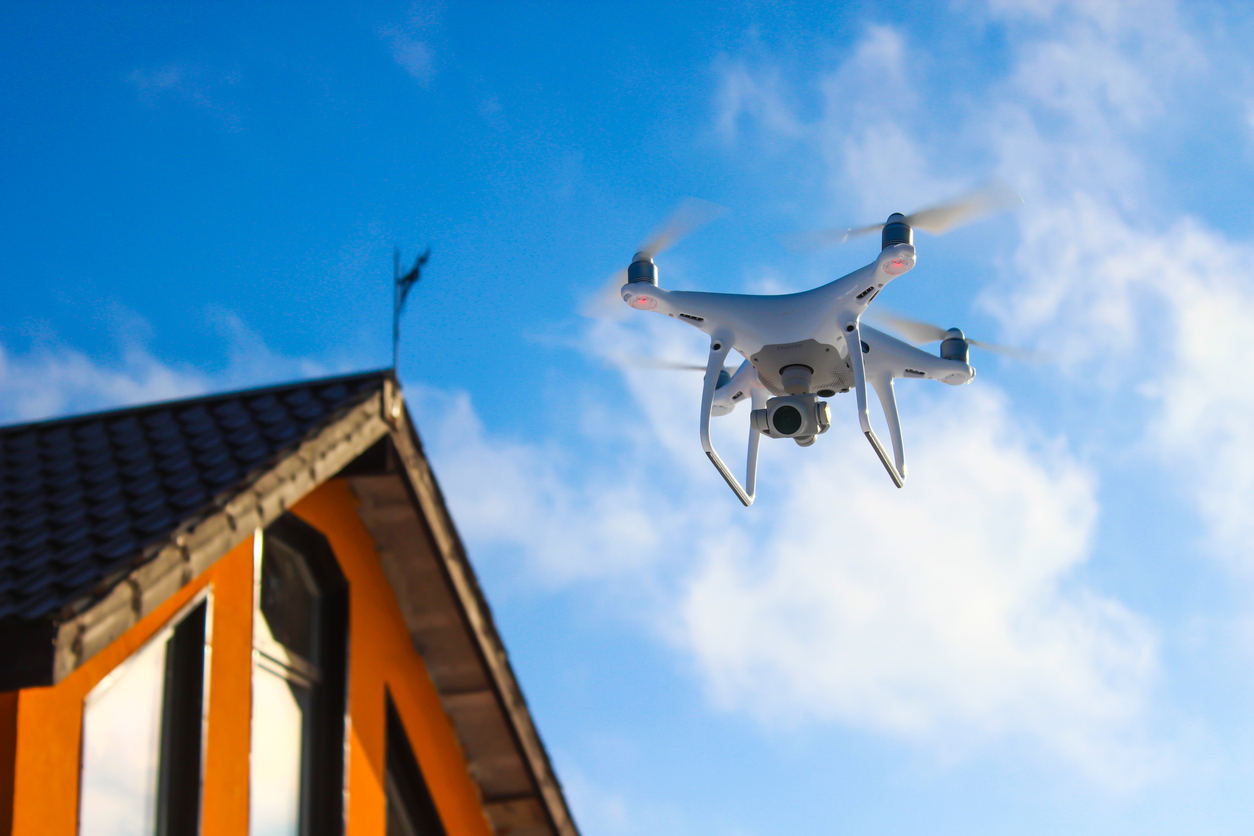
The use of drones in residential communities is rapidly increasing, offering numerous benefits such as enhanced security and convenience. However, the rise of drone usage also brings about potential legal and safety concerns, making it essential for homeowners associations (HOAs) to implement clear and effective drone policies. Understanding HOA legal rights is crucial in this process.
Insurance agents are vital in guiding their HOA clients through the complexities of establishing these policies while ensuring they comply with relevant laws and mitigate risks.
Why Are Drones Increasing in Popularity?
Drones are becoming popular in HOA communities for several reasons:
- Security and inspections: Drones can monitor large areas for security, inspect hard-to-reach places, and check for air leaks around windows and doors.
- Fire safety: Drones can be used for routine fire safety inspections and provide real-time high-definition views during fires.
- Contractor monitoring: HOAs can use drones to oversee the work of contractors, ensuring tasks like landscaping and painting are done properly.
- Violation management: Drones help in identifying HOA violations such as trash accumulation or prohibited rooftop grills, although this raises privacy concerns.
What Are HOA Legal Rights?
HOAs have specific legal rights to regulate drone usage within their communities. These rights are grounded in the authority granted to HOAs by state laws and their governing documents. For instance, in Texas, HOAs can implement rules to manage drone activity to protect residents’ privacy and safety. Insurance agents need to understand these legal rights and advise their clients accordingly.
HOAs can enforce drone policies through amendments to their governing documents or by adopting new rules and regulations. This enforcement power ensures that drone usage does not infringe on the rights and safety of other residents. However, drone laws can vary by state and city, requiring HOAs to tailor their policies to comply with local regulations. California, for example, has specific privacy laws that affect how drones can be used in residential areas.
Assessing Risks and Liabilities
Introducing drones into HOA communities brings risks and liabilities that need careful assessment. Common hazards include potential invasions of privacy, property damage, and personal injury, which can lead to significant liabilities for the HOA and individual homeowners.
To manage these risks, HOAs should conduct thorough risk assessments that consider their community’s specific characteristics and the types of drone activities likely to occur.
By identifying potential hazards and implementing appropriate measures, HOAs can minimize their liability exposure. Insurance agents can support this process by offering insights into best practices for risk management, educating directors and officers on their HOA legal rights, and recommending suitable insurance coverage options.
Crafting Comprehensive Drone Policies
A robust drone policy is crucial for HOAs to manage drone usage effectively. Key components should include:
- Clear guidelines on where and when drones can be flown
- Restrictions on drone operations to protect privacy
- Safety protocols to prevent accidents
For example, a drone policy might specify that drones cannot be flown within a certain distance of homes, restrict flights to daytime hours, and require drone operators to adhere to Federal Aviation Administration (FAA) regulations. Clear communication with community members about these policies is essential to ensure compliance and address concerns.
Given the variation in drone laws by state and city, HOAs must develop tailored policies that align with local regulations. This customization ensures the policies are enforceable and legally sound, reducing the risk of legal challenges.
Insurance Considerations for Drone Policies
The implementation of drone policies in HOA communities has significant insurance implications. Different types of coverage can address drone-related risks, such as liability insurance to cover damages or injuries caused by drones and property insurance to protect against damage to common areas or individual properties.
Insurance agents can assist their HOA clients by helping them understand these coverage options and select the appropriate policies to mitigate their risks. One recommendation is adding a drone endorsement to the HOA’s existing liability policy or exploring specialized drone insurance products.
Final Thoughts
Putting drone policies in place is crucial for HOAs as drone use increases in residential communities. Insurance agents play a key role in guiding their clients through this process, helping them understand their legal rights, assess risks, and get the right insurance coverage.
Partnering with a knowledgeable and experienced wholesale broker like Kevin Davis Insurance Services can provide insurance agents with the guidance and coverage options their clients need to manage drone policy implementation.
About Kevin Davis Insurance Services
For over 35 years, Kevin Davis Insurance Services has built an impressive reputation as a strong wholesale broker offering insurance products for the community association industry. Our president Kevin Davis and his team take pride in offering committed services to the community association market and providing them with unparalleled access to high-quality coverage, competitive premiums, superior markets, and detailed customer service. To learn more about the coverage we offer, contact us toll-free at (855)-790-7393 to speak with one of our representatives.


